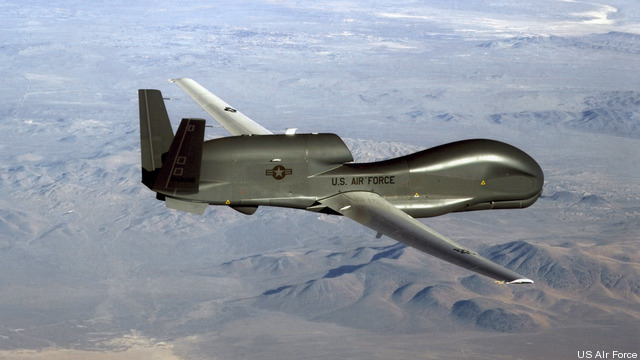
WASHINGTON: The House Armed Services Committee is giving the US Air Force both marching orders and money to operate its eighteen “Block 30” Global Hawk UAVs instead of warehousing them as the service proposed. The Administration’s fiscal 2013 budget request cancelled the Block 30 program and provided no funds to operate the 18 drones already bought from prime contractor Northrop Grumman, arguing they were less effective and more expensive to fly than the venerable U-2, the manned spyplane they were intended to replace. But the HASC’s mark-up of the National Defense Authorization Act for 2013 includes $260 million to keep the Block 30s operational.
The first slice of that funding appeared this morning on page 7 of a 190-page document released by the personnel subcommittee, with a statement that ” The committee recommends an increase in end strengths to reflect the corresponding manpower requirements to maintain 18 Air Force Block 30 RQ-4 Global Hawks.” A House source confirmed that the procurement and operations & maintenance funding to operate the Global Hawks would be in other subcommittee marks being released today and tomorrow.
“The Air Force’s proposal to just retire [the UAVs] immediately hasn’t gone over so well here on the House side with members,” said the House source, laughing, in a conversation with Breaking Defense.
It’s still somewhat of a surprise that the HASC has intervened to save the Global Hawk, something that Chairman Buck McKeon (R-Calif.) had previously declined to do. The powerful top Democrat on the Defense Appropriations subcommittee, Rep. Norm Dicks (D-Wash.), however, has made clear that mothballing the Block 30s is “unacceptable,” which means that once the authorizers on the HASC pass their bill, the money to implement it will be forthcoming from the appropriators. Now all the Global Hawk provision has to do is survive the House floor vote, the Senate, any Presidential veto, and the closed-door conference process between the two legislative chambers. Jim Stratford, a Northrop Grumman spokesman for the Global Hawk program, said on hearing the news from Breaking Defense that, “”This is very encouraging, but there’s still a long process ahead.”
In a ‘world first,’ DARPA project demonstrates AI dogfighting in real jet
“The potential for machine learning in aviation, whether military or civil, is enormous,” said Air Force Col. James Valpiani. “And these fundamental questions of how do we do it, how do we do it safely, how do we train them, are the questions that we are trying to get after.”


























